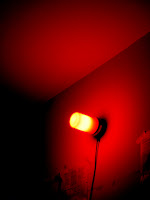to a beat-up broken black table
in the middle of a wide-open room
in the middle
of whatever that was
you were singing
You and your sulking
remembered a song to me,
it’s British and sad but
it sounds just like fire
with its crackle and spark
You and your face pressed
to a table
looked broken and sad,
but the singing—
it burned like fire, or ice,
and it was neither British nor sad
Obviously I can’t make any sense of it at all.
But I’m out of practice with sense-making—
I forgot how to pause a long time ago
You see,
Dysfunction is a quiet little fucker.
But then,
So is rising.
It occurs to me now that
I remembered in the moment
to hope that you
would just keep singing.
Any song you like,
whatever beast of a worry-filled tune
your little bent-up heart desired,
as long as you sang it with that head
on my table
and the ache in your throat
as long as you agreed
not to watch me unravel
at the sight
of you singing.










